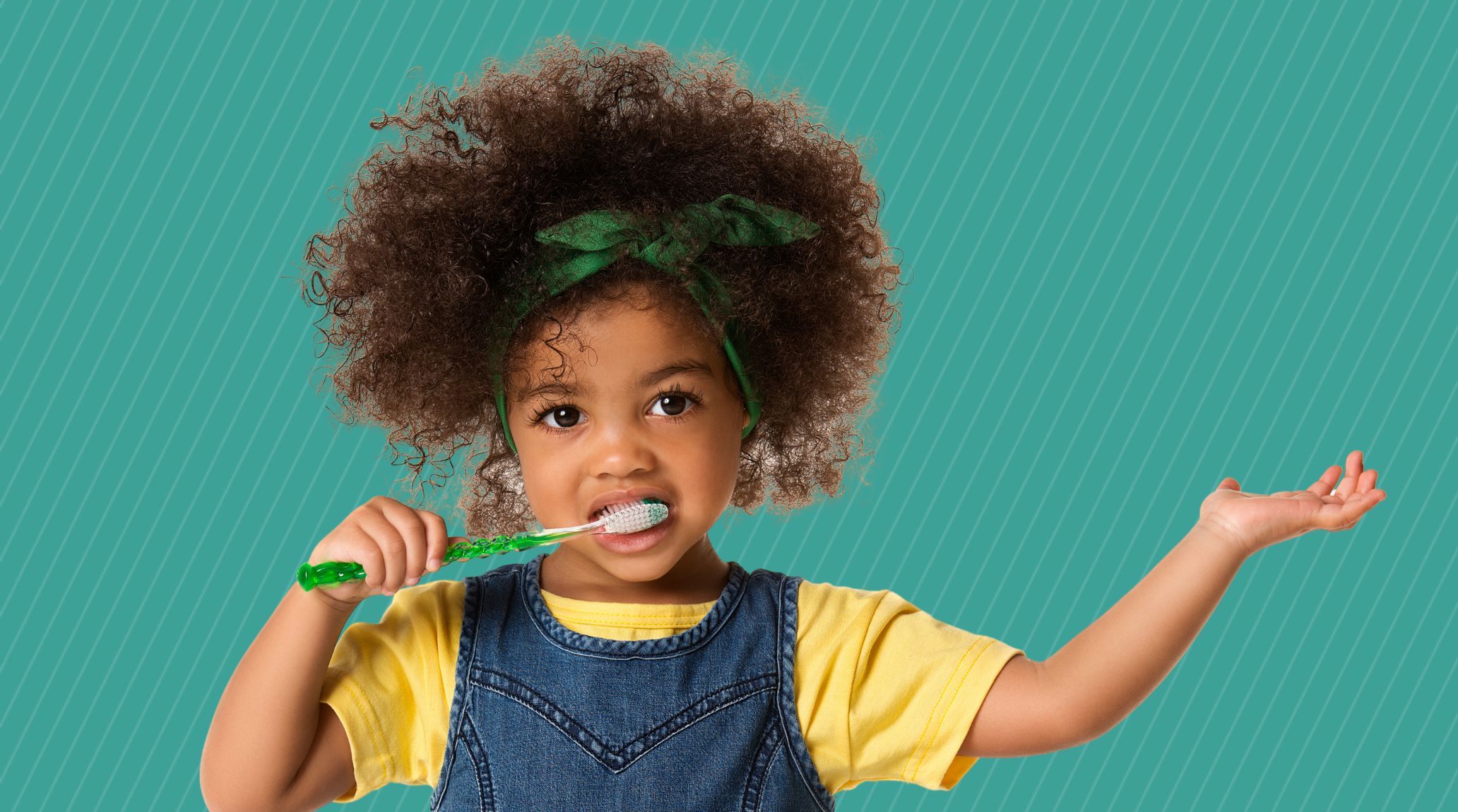
“
Teaching children good dental habits from an early age is crucial for their long-term oral health and overall well-being. In this informative blog, we'll delve into practical tips and techniques designed to make oral care both enjoyable and effective for kids. Our goal is to provide you with valuable insights and tools to create healthy dental habits that will last a lifetime. Join us as we embark on this journey towards nurturing bright, confident smiles for the future.1
1
”
Brush your teeth in the morning and before bed for at least two minutes each time. This routine helps remove plaque and prevent tooth decay and gum disease. Proper brushing is essential for maintaining optimal oral health. 1
Fluoride in toothpaste helps protect your teeth from cavities. It strengthens enamel and reduces the risk of dental caries. Ensure your toothpaste contains fluoride for effective protection. 2
Avoid scrubbing too hard! Use gentle, circular motions to clean your teeth and gums. Harsh brushing can wear down enamel and irritate gums, leading to sensitivity and gum recession. 3
Mouthrinse is not recommended for children under the age of 6. Young children may accidentally swallow mouth rinse, which can be harmful. It's best to wait until they are older and can use it safely under supervision. 4
Visit your dentist twice a year for cleanings and exams. Regular visits help catch dental issues early and keep your teeth and gums healthy. Professional care complements your at-home oral hygiene routine. 5
Limit sugary snacks and drinks to protect your teeth. Eating plenty of fruits, vegetables, and dairy products supports dental health by providing essential nutrients for enamel strength and gum health. 6
Water is the best drink for your teeth. It helps wash away food and keeps your mouth hydrated. Drinking water after meals can neutralize acids and reduce the risk of cavities. 7

Chewing gum with xylitol can help prevent cavities. Xylitol stimulates saliva production, which neutralizes acids and washes away food particles, offering extra protection against decay.
Wear a mouthguard during sports to protect your teeth from injury. Mouthguards cushion impacts and prevent dental trauma, safeguarding your teeth during physical activities. 8
Replace your toothbrush every 3-4 months or sooner if the bristles are frayed. A worn-out toothbrush is less effective at cleaning and can harbor bacteria. Regular replacement ensures effective brushing. 9
Gently brush your tongue to remove bacteria and keep your breath fresh. Tongue cleaning reduces bacteria that cause bad breath and helps maintain overall oral hygiene. 10
Artificial intelligence is being used to develop software that can detect early signs of cavities from dental X-rays with greater accuracy than human dentists. Could lead to earlier intervention and better oral health. 11
If brushing isn’t possible, rinse your mouth with water after eating. Helps remove food particles, minimizing plaque buildup and reducing the risk of tooth decay between brushings. 12
Imagine a toothbrush that not only cleans teeth but also gives real-time feedback on brushing technique. Smart toothbrushes track brushing time, pressure, and coverage, helping kids develop good habits. 13
Opt for a toothbrush with soft bristles to avoid damaging your gums and enamel. Soft bristles are effective at removing plaque and debris without irritation or wear to the teeth and gums. 14
Consider dental sealants for your child's teeth. Sealants are protective coatings applied to the chewing surfaces of back teeth, where cavities are most likely to form. They act as barriers against plaque and acids. 15

Nail biting can severely damage your teeth and gums. It may lead to chipped teeth and gum irritation and introduce harmful bacteria into your mouth. Avoid this habit to protect oral health.
Consistency in oral hygiene is essential. Make brushing and flossing a daily habit to ensure it becomes a natural part of your routine. Regular practice is key to maintaining good oral health. 16
Avoid brushing your teeth immediately after consuming sugary or acidic foods. Wait at least 30 minutes to allow your enamel to re-harden and prevent erosion. This practice helps protect your enamel. 17
On February 3, 2019, Telangana, India, set the record for the largest oral hygiene lesson with 4,578 participants. This event, organized by Grace Cancer Foundation and its partners, aimed to raise awareness about oral hygiene. 18


